-
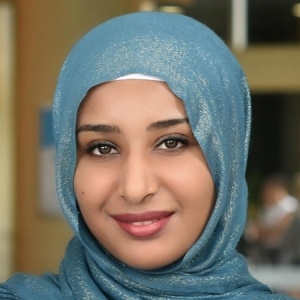
Salma Ahmed
University of Queensland, Australia -
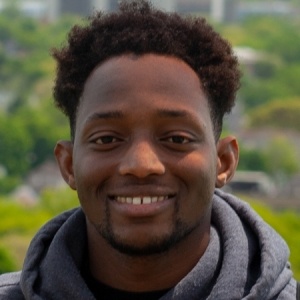
Ernest Awoonor-Williams
Novartis Institute for BioMedical Research, United States -
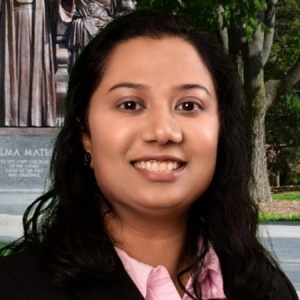
Progna Banerjee
Argonne National Laboratory, United States -
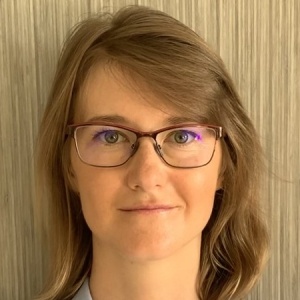
Magda Helena Barecka
Cambridge Centre for Advanced Research and Education in Singapore (CARES), Singapore -
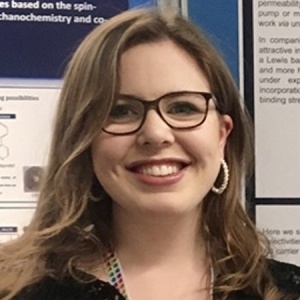
Laura Bickerton
University of Oxford, United Kingdom -
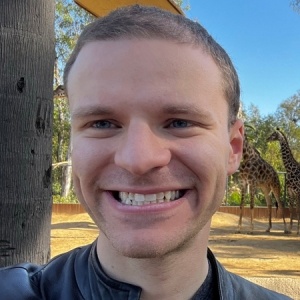
Kurtis Carsch
University of California, Berkeley, United States -
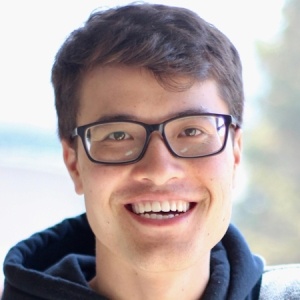
Steven Crossley
University of California, Berkeley, United States -
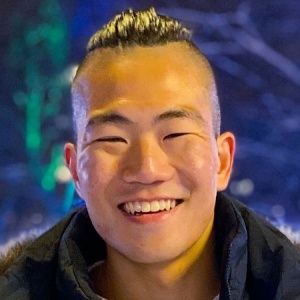
Jacky Deng
University of Ottawa, Canada -
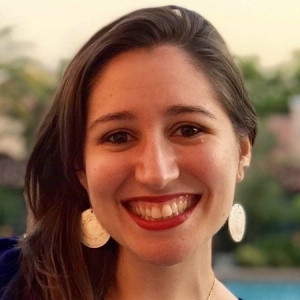
Silvina Analía Di Pietro
Pacific Northwest National Laboratory/Lawrence Livermore National Laboratory, United States -
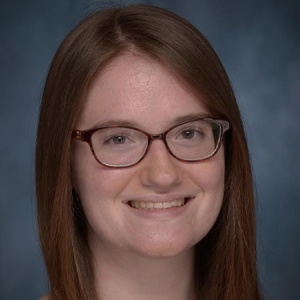
Stanna K. Dorn
Indiana University-Bloomington, United States -
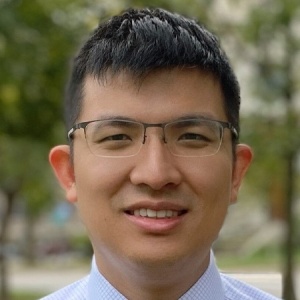
Liang Feng
Northwestern University, United States -
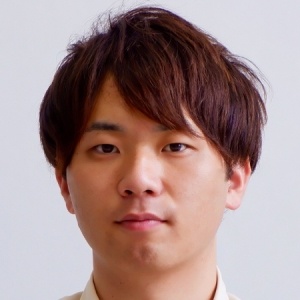
Ikuya Fujii
Kyoto University, Japan -
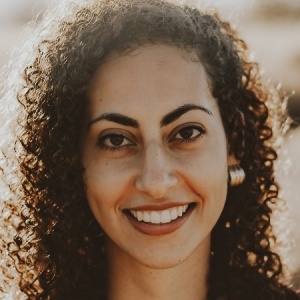
Sylvia Hanna
Northwestern University, United States -
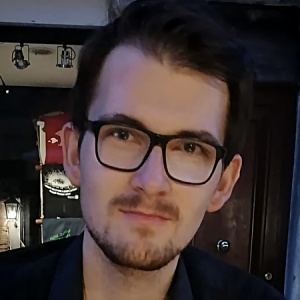
Kevin Maik Jablonka
École polytechnique fédérale de Lausanne (EPFL), Switzerland -
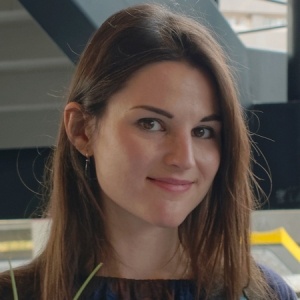
Elisabeth Kreidt
University of Manchester, United Kingdom -
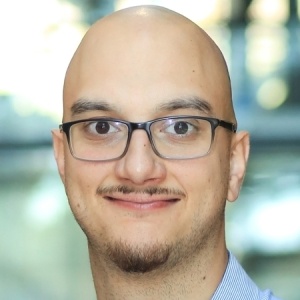
Gabriele Laudadio
Scripps Research Institute, United States -
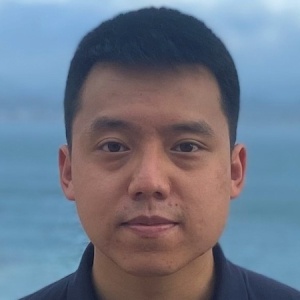
Richard Liu
Massachusetts Institute of Technology, United States -
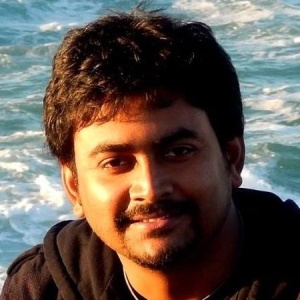
Rajat Maji
Max-Planck-Institut für Kohlenforschung, Germany -
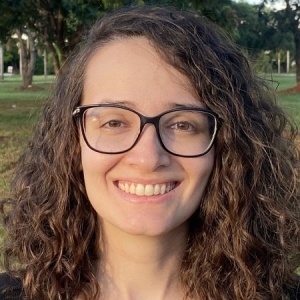
Helena Mannochio Russo
São Paulo State University, Brazil -
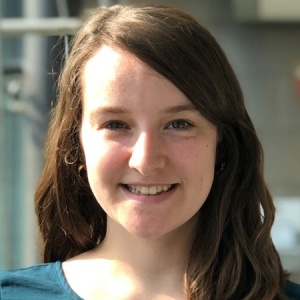
Erin J. Peterson
Massachusetts Institute of Technology, United States -
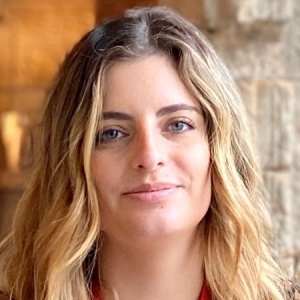
Aleksandra Popowich
Metropolitan Museum of Art, United States -
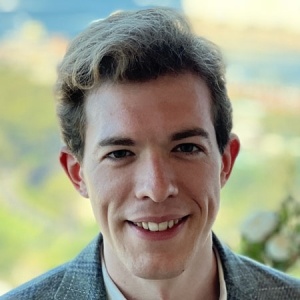
Dylan Sherman
University of Oxford, United Kingdom -
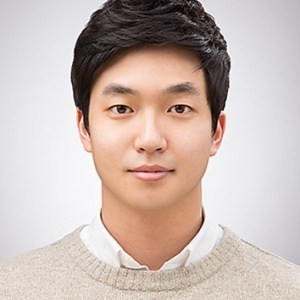
Jinwoo Shin
Korea University, South Korea -
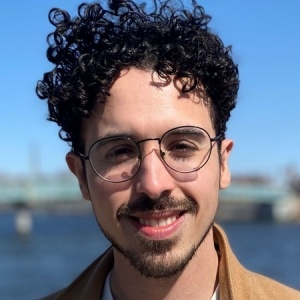
Julio Terra
McGill University, Canada -
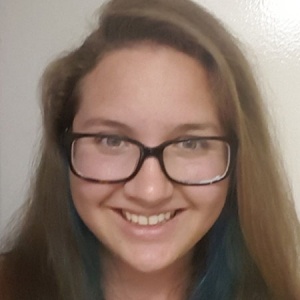
Olivia Harper Wilkins
NASA Goddard Space Flight Center, United States -
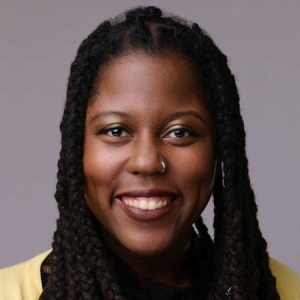
Ashley Woolfork
University of Pennsylvania, United States -
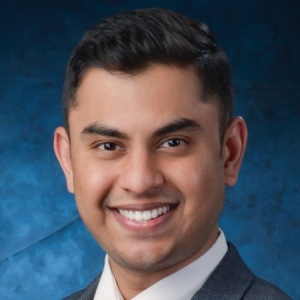
Saigopalakrishna Yerneni
Carnegie Mellon University, United States -
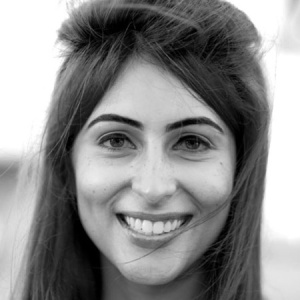
Maha Yusuf
Stanford University, United States -
Ruijie Zhang
University of North Carolina at Chapel Hill, United States
Salma Ahmed
Salma is a Ph.D. candidate in bioengineering at The University of Queensland, Australia. With a background in chemical engineering, Salma applies her knowledge in chemistry, biology, molecular imaging and data analysis, to develop next generation tools for precision cancer nanomedicine. Throughout her career, Salma co-authored multiple research articles and a book chapter, and won several academic and non-academic scholarships, awards and prizes. She is an advocate for STEM education, a TEDxUQ curator, a previous TEDxOmdurman speaker and an accredited MHFAider. Salma is looking forward to applying her expertise in a post-doctoral position upon completing her Ph.D.
Ernest Awoonor-Williams
Ernest completed his B.Sc (Hons) at Mount Allison University, Canada, where he was fortunate to dabble in multiple research projects in organic chemistry, inorganic chemistry, and chemical physics. Upon completion of his bachelor’s degree, Ernest moved to Memorial University of Newfoundland in St. John’s, Canada, to pursue his doctorate in computational biophysics under the tutelage of Prof. Christopher Rowley. Ernest’s Ph.D. research explored the use of computational methods in modelling the covalent modification of druggable cysteines in enzyme targets. Currently, Ernest is an Innovation Postdoctoral Fellow at the Novartis Institute for BioMedical research in Cambridge, MA, exploring in silico approaches towards drug discovery.
Progna Banerjee
Progna is an NST core-funded postdoctoral appointee at Argonne National Laboratory with strong interdisciplinary research background in experimental condensed matter physics, materials chemistry, and electronics. She earned Ph.D. (physics with materials chemistry) and M.S. (strongly correlated condensed matter) degrees from the University of Illinois at Urbana-Champaign, United States, in December 2018 and 2014, respectively. Before that, Progna completed M.Tech. (solid state technology) and M.Sc. (physics) degrees from the Indian Institute of Technology, Kharagpur. Prior to starting her current position with the Argonne National Laboratory, she was an NSF MRSEC postdoctoral fellow at the University of Texas at Austin, United States (2020-2021), investigating light-matter interactions in bioinspired nanostructures; and an EBI-Shell ALS affiliated postdoctoral fellow at the Lawrence Berkeley National Laboratory, California, United States (2019), in battery science.
Magda Helena Barecka
Magda is interested in accelerating the adoption of carbon-neutral production methods. She is a chemical engineer, with expertise in process intensification, retrofitting and design developed in private sector and academia. She holds a Ph.D. degree from TU Dortmund University (Germany). As part of her dissertation, Magda developed a methodology supporting the implementation of intensified technologies in chemical manufacturing and subsequently transferred the method to industrial partners. Currently, as a postdoctoral scholar at Cambridge Centre for Research in Singapore, she proposed a new approach for carbon utilization: carbon capture on-site recycling, and a novel method for carbon-neutral isotope enrichment.
Laura Bickerton
Laura completed her undergraduate degree in biochemistry and biological chemistry at the University of Nottingham in 2018 and then moved to the University of Oxford for her DPhil in inorganic chemistry. Laura has been working under the supervision of Prof. Matthew Langton and Prof. Paul Beer on the design and synthesis of supramolecular anion receptors capable of facilitating the transport of biologically relevant anions across cell membranes. Once she has completed her DPhil, Laura is excited to be moving to the University of Edinburgh for a postdoctoral research position with Dr. Paul Lusby working on catalysis in molecular capsules.
Kurtis Carsch
Kurtis is an Arnold O. Beckman Postdoctoral Scholar at UC Berkeley with Prof. Jeffrey Long, developing porous materials for challenging gas separations. Kurtis received a joint B.S./M.S. in chemistry with Prof. Theodor Agapie (Caltech, 2016), followed by Ph.D. studies with Prof. Theodore Betley (Harvard, 2021), supported through the Hertz Foundation and NSF GFRP. His graduate research focused on elucidating atypical electronic structures of catalytically relevant intermediates. Kurtis attributes his interest in chemistry to an upbringing in which playing with LEGO bricks established a foundation for his interest in combining elements to create molecules with unprecedented properties.
Steven Crossley
Steven received a bachelor’s degree in chemistry from the University of British Columbia in Vancouver. In 2013, he began his Ph.D. work as an NSERC PGS D3 fellow with Prof. Ryan A. Shenvi at The Scripps Research Institute in La Jolla, CA. At Scripps, he developed alkene hydrofunctionalization methods with Mn and Co hydrides and synthesized picrotoxane natural products to enable investigation of GABAAR neurobiology. He is currently a Damon Runyon postdoctoral fellow with Prof. Christopher J. Chang at UC Berkeley and working to develop and apply chemical tools to problems in cancer, redox biology, and cellular signaling.
Jacky Deng
Jacky (he/him) is a Ph.D. candidate conducting chemistry education research at the University of Ottawa, where he holds a Vanier Graduate Scholarship—Canada’s most prestigious graduate scholarship. His research is focused on how students from diverse language backgrounds justify chemical phenomena. Jacky is a member of the Canadian Society of Chemistry’s Working for Inclusivity, Diversity, and Equity (WIDE) Committee, and has hosted multiple national and international workshops on fostering equity and inclusion in chemistry. He loves teaching and learning and plans to pursue a career in chemistry/science education.
Silvina Analía Di Pietro
Silvi is a National Nuclear Security Administration graduate fellow and postdoctoral researcher working in Lawrence Livermore National Laboratory, a program sponsored by the Pacific Northwest National Laboratory. She currently investigates additive manufacturing as a viable and disruptive technology for nuclear applications. Prior to LLNL, Silvi obtained her Ph.D. in environmental chemistry in spring 2021 from Florida International University, Miami, FL. At FIU, she assisted in the development of ammonia gas injection for uranium remediation at the DOE Hanford Site in Washington. In 2021, she was selected as the U.S. Delegate to the IUPAC National Committee.
Stanna K. Dorn
Stanna is an aspiring academic from Grayling, MI. She obtained a B.S. in chemistry and B.A. in music from Hope College, where she performed organometallic research under the guidance of Prof. Jeffrey Johnson. Currently, Stanna is a Ph.D. candidate at Indiana University-Bloomington and is advised by Prof. Kevin Brown. During this time, she has investigated the difunctionalization of alkenes via Cu/Pd synergistic catalysis. She has received numerous awards, including the ACS WCC/Merck Research Award, the IU Chester Davis Fellowship, and the IU Associate Instructor Award. Outside the lab, she enjoys reading, playing the flute, and advocating for students.
Liang Feng
Liang Feng obtained his BSc in chemistry from Wuhan University in 2016 and his Ph.D. in chemistry from Texas A&M University under the supervision of Professor Hong-Cai Joe Zhou in 2020. During graduate studies, he utilized lability to edit simple porous crystals into framework materials with hierarchical porosities, architectures, and compositions for catalysis and gas separation. Currently, Liang is exploring the frontier of molecular machines and porous materials as a postdoctoral fellow working with Professor J. Fraser Stoddart at Northwestern University. His research involves the discovery of mechanisorption, the first fundamentally new form of adsorption since the 1930s.
Ikuya Fujii
Ikuya was born and raised in Kobe. He received his B.Eng. degree from Kobe City College of Technology in 2018 under supervision of Professor Takuya Koizumi. He obtained his M.Eng. from Kyoto University under the guidance of Professor Yoshiaki Nakao in 2020. He is currently a Ph.D. candidate in the Graduate School of Engineering at Kyoto University and a JSPS Young Scientists Fellow. His research with Professor Nakao focuses on development of catalytic inert-bond transformations using precisely designed transition-metal complexes, in which he developed catalytic transformations of strong carbon–fluorine bond and carbon–oxygen bond enabled by hetero-bimetallic complexes.
Sylvia Hanna
Sylvia is a Department of Energy National Nuclear Security Administration Stewardship Science Graduate Fellow and is currently nearing the completion of her Ph.D. in chemistry at Northwestern University. She received her B.S. in chemistry with honors at Rowan University in 2017. Her current research with Professor Omar Farha focuses on investigating crystalline transformations of uranium-based metal–organic frameworks for nuclear stockpile stewardship applications. During her Ph.D., Sylvia has most enjoyed performing collaborative research, and making scientific stories accessible through effective communication, two endeavors she is interested in furthering throughout her future career.
Kevin Maik Jablonka
After spending time in the lab at the Technical University of Munich, Kevin moved to Switzerland to focus on computational aspects. At EPFL, he got his master's degree in chemistry with a minor in data science and now works as a Ph.D. student with Berend Smit. Kevin’s research focuses on the digitization of chemistry: utilizing and developing computational tools, such as databases, electronic lab notebooks, and machine learning, to capture the tacit dimension of chemistry—to provide chemists with a digital assistant and to solve problems that are too complex to address with theory alone.
Elisabeth Kreidt
Elisabeth studied chemistry in Bochum, Germany. She then did her Ph.D. with Michael Seitz at the University of Tübingen, developing stable, functionalized lanthanoid complexes and studying their photophysical and magnetic properties. After graduating summa cum laude in 2018, she moved to the group of David Leigh in Manchester. Her postdoctoral work focuses on the synthesis and study of molecular knots and machines. In the future she plans to combine aspects from both fields to prepare lanthanoid coordination compounds with new dynamic functionalities.
Gabriele Laudadio
Gabriele received his M.Sc. degree in organic chemistry at the University of Pisa. In 2016, he joined the Micro Flow Chemistry & Synthetic Methodology group of Prof. Timothy Noël as a doctoral candidate. In 2020, he defended his Ph.D. degree (cum laude). After a brief period as postdoctoral fellow and group leader in Prof. Noël’s group, he joined Prof. Baran’s group at The Scripps Research Institute as a Hewitt Foundation Fellow. His research focuses on the application of green chemistry to improve synthetic methodologies, exploring new strategies to obtain organic molecules in a more efficient way.
Richard Liu
Richard earned his bachelor’s degree in chemistry and physics at Harvard University in 2015. There, he worked with Professors Theodore Betley and Eric Jacobsen on the development of new catalytic transformations. He then pursued doctoral studies at the Massachusetts Institute of Technology (MIT) under the supervision of Professor Stephen Buchwald. Richard’s Ph.D. dissertation focuses on the reactivity of copper(I) hydride complexes. Since 2019, he has been a postdoctoral associate at MIT, carrying out research with Professor Timothy Swager on photochemical transformations performed on and by organic polymers.
Rajat Maji
Rajat is currently a Marie Curie Postdoctoral Fellow under the supervision of Prof. Benjamin List (NL) at the Max-Planck Institute Kohlenforschung, Germany. He completed his Ph.D. and M.S. in chemistry at Texas A&M University (supervisor: Prof. Steven Wheeler) and Indian Institute of Technology Kharagpur (supervisor: Prof. Tanmaya Pathak), respectively. Rajat will soon begin a new postdoctoral position at the University of California Los Angeles (UCLA) under the guidance of Prof. Abigail Doyle. The overarching goal of his research is to develop and understand novel sustainable catalytic transformations, harnessing the complementary strengths of experiment, theory and data science.
Helena Mannochio Russo
Helena recently obtained her Ph.D. degree in chemistry from the São Paulo State University (UNESP), Brazil. She holds a B.S. degree in chemistry from the State University of Campinas and an M.S. in chemistry from UNESP. As a Fulbright alumna, she was a Visiting Scholar at UCSD, where she will be a postdoctoral researcher. She also did two internships at the University of Geneva. Her main research fields involve metabolomics, chemistry of natural products, phytochemistry, and the curation of a Brazilian natural products database. Helena is the co-chair (2022-2024) of the Brazilian Young Researchers committee of the Brazilian Chemical Society.
Erin J. Peterson
Erin is a postdoctoral associate working with Dr. Danna Freedman at the Massachusetts Institute of Technology. She graduated from Villanova University with a bachelor’s degree in chemistry in 2017. While at Villanova, she worked with Dr. Jared Paul studying the spectroelectrochemical properties of ruthenium polypyridyl metal complexes. Erin completed her Ph.D. at Duke University in 2022 under the supervision of Dr. Michael Therien. Her doctoral work focused on the photophysics of (porphinato)zinc(II) chromophores.
Aleksandra Popowich
Aleksandra is a fellow at the Metropolitan Museum of Art in New York in the Department of Scientific Research. Her research interest is at the intersection of art and science, using analytical chemistry to study cultural heritage objects, artist materials, trade, and more. At The Met, she studies the many uses of proteins, lipids, and gums in works of art using mass spectrometry. Previously, she was a postdoctoral fellow at the Smithsonian’s Museum Conservation Institute. She holds a Ph.D. in chemistry from the University of Alberta and a BSc in chemistry from the University of British Columbia.
Dylan Sherman
Dylan is currently completing his DPhil at the University of Oxford, Department of Engineering Science, under the auspices of the 2020 Australian Sir John Monash Scholarship and Oxford Clarendon Scholarship. His research, supervised by Prof Jin-Chong Tan, focuses on MOFtronics: developing Metal-Organic Framework (MOF) nanosheets functionalised by intercalated guests to construct durable nanodevices for sensing, lighting, and filtration. Dylan holds a Bachelor of Science (Advanced) (Honours) with the University Medal from The University of Sydney, having investigated redox-active multifunctional MOFs under the supervision of Prof Deanna D’Alessandro. Dylan also holds a Bachelor of Laws (Honours) and previously practised as a lawyer at Clayton Utz in Sydney.
Jinwoo Shin
Jinwoo received his B.S. degree (summa cum laude) from the Department of Chemistry at the Hallym University of Korea in 2015 before completing a Ph.D. from the Department of Chemistry at Korea University in 2021 (supervisor: Professor Jong Seung Kim). He is currently conducting his research as a postdoctoral fellow in the research group of Professor Jong Seung Kim, Korea University, Seoul. His research interests include multi-functional theranostic agents and advanced fluorescent imaging agents for various pathologies, including cancer, senescence, and Alzheimer’s disease.
Julio Terra
Julio is originally from Brazil, where he took his B.Sc. in chemistry (research and teaching degrees), and his M.Sc. in inorganic chemistry. He lives now in Montreal, Canada, where he is currently a Ph.D. candidate at McGill University in the group of Professor Audrey Moores. His research focuses on the development of novel catalytic processes in the context of green chemistry. Specifically, Julio is interested in designing hierarchical silica-based nanostructures to be used as active supports in catalysis. He is also interested in science education and communication.
Olivia Harper Wilkins
Olivia is a NASA Postdoctoral Program (NPP) Fellow working on cosmic ice analogue experiments to understand interstellar molecule formation at NASA Goddard Space Flight Center. Prior to NASA, she completed her Ph.D. in chemistry at Caltech, where she used radio telescopes to observe interstellar laboratories that constitute star-forming regions. She also holds a B.S. in chemistry and mathematics from Dickinson College (Pennsylvania, United States) and was a Fulbright Research Fellow at the University of Cologne (Germany). Olivia also enjoys communicating science through art, and she authored and illustrated Astrochemistry for the ACS In Focus series.
Ashley Woolfork
Ashley is a first year Institutional Research and Academic Career Development Awards (IRACDA) postdoctoral fellow at the University of Pennsylvania in the department of Systems Pharmacology and Translational Therapeutics. She received her bachelor’s in chemistry from Rutgers University-New Brunswick in 2016 and her Ph.D. in analytical chemistry from the University of Nebraska-Lincoln in 2021. Her graduate research used high performance affinity chromatography to examine the interaction between serum transport proteins and various anti-diabetic drugs and developed a fluorometric sandwich assay for the detection of COVID-19 antibodies. Her current research uses mass spectrometry imaging to understand systems level changes in metabolism as it relates to sleep and circadian rhythms. She also has a passion for teaching where she believes in empowering students in STEM by helping them develop their academic abilities in their general chemistry and math courses.
Saigopalakrishna Yerneni
Sai is a postdoctoral fellow working with Professor Kathryn Whitehead in the Department of Chemical Engineering at Carnegie Mellon University (CMU). He completed his Ph.D. in biomedical engineering at CMU under the supervision of Professors Phil Campbell and Lee Weiss. His Ph.D. work was focused on studying extracellular vesicle (EV) biology and therapeutics. In his current research, Sai is developing EV-inspired lipid nanoparticles for RNA drugs.
Maha Yusuf
Maha is a Ph.D. candidate in chemical engineering at Stanford University. She is also a Schlumberger Faculty for the Future and Stanford Diversifying Academia, Recruiting Excellence Fellow. Advised by Professor Michael F. Toney and Dr. Johanna Nelson Weker, her research uses imaging diagnostic tools to understand the failure mechanisms of lithium-ion batteries during extreme fast-charging. She holds an M.S. in chemical engineering from Stanford and a B.E. from the National University of Sciences and Technology, Pakistan. Prior to Stanford, she worked as a drilling engineer on oil and gas rigs in the Amazon rainforests in Colombia.
Ruijie Zhang
Ruijie completed their undergraduate degree in chemistry at the California Institute of Technology under the mentorship of Prof. Harry Gray and Prof. William Goddard. Upon completion of their Ph.D. in chemistry in the group of Prof. David Beratan at Duke University, Ruijie joined the Tieleman group at the University of Calgary, where they researched drug-lipid interactions and viral capsid dynamics. Ruijie is now working under the guidance of Prof. Alexander Tropsha and Prof. Alexander Kabanov on predicting drug solubilization and the morphologies of polymeric micelles using machine learning and molecular dynamics.
